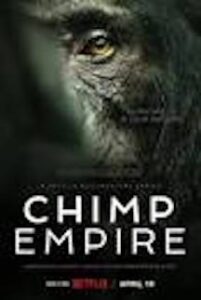Exciting… and Disturbing

A subscriber sent in this “clipping” under the headline:
“Chat-GPT as Mark Ford telling you how to live your BEST life!”
I wasn’t sure what to make of it because I don’t know how Chat-GPT works. I know that, as an AI machine, it doesn’t currently go out to the internet for resource material. And that its current database of knowledge is limited. I know, too, that one can feed data to the machine. Did this person scan in all my essays and books about living one’s best life?
I don’t know. But here’s what it produced:
“If you’re like me, you want to make the most out of life. You want to thrive, not just survive. Over the years, I’ve picked up a few keys to living your best life that I’d like to share with you. These are the things that have worked for me and countless others who have followed in my footsteps.
“First and foremost, you need to take care of your health. Without good health, you can’t do much of anything else. That means eating well, getting enough sleep, and staying active. Make it a priority to move your body every day, even if it’s just a brisk walk around the block.
“Next, you need to find your passion. What lights you up inside? What makes you excited to get out of bed in the morning? Whatever it is, pursue it with everything you’ve got. Life is too short to waste time on things that don’t matter to you.
“At the same time, you need to be willing to step out of your comfort zone. Growth happens when you challenge yourself, when you take risks and try new things. Don’t be afraid to fail; it’s part of the learning process.
“Another key to living your best life is to surround yourself with positive people who lift you up. These are the people who support you, who encourage you, and who share your values. And if there are toxic people in your life, who bring you down and hold you back, it’s time to cut ties and move on.
“Finally, don’t forget to enjoy the little things in life. Life is not just about achieving goals and hitting milestones. It’s about savoring the small moments of joy, like a cup of coffee in the morning, a sunset on the beach, or a good book on a rainy day.
“So there you have it, my keys to living your best life. Take care of your health, find your passion, challenge yourself, surround yourself with positive people, and enjoy the little things. It’s not a complicated formula, but it works. Try it for yourself and see what happens.”
At first glance, I was impressed. I’ve often said that health – mental health as well as physical health – is the basis of accomplishing anything. Okay, that could be me. But the examples of how to stay healthy – “eating well, getting enough sleep, and staying active… even if it’s just a brisk walk around the park.” That’s not what I’d say.
Next: “Find your passion.” Huh?! No. Sorry, Chat. Most of what I say about this maxim is derogatory. I don’t think finding one’s passion is a useful concept at all.
And “step out of your comfort zone” – though arguably good advice, is a cliché. I try not to use clichés.
The rest of it, to me, is intellectual drivel. (One of my personal rules is to never give advice that is generally considered sensible.)
So, no dice, Chat-GPT. That’s not me.
On the other hand, if a freshman student handed in this in response to an assignment like “Write a short essay on how to live a good life, citing one source,” I’m sure it would get a B. So long as the grader had never read anything I’ve actually written.



